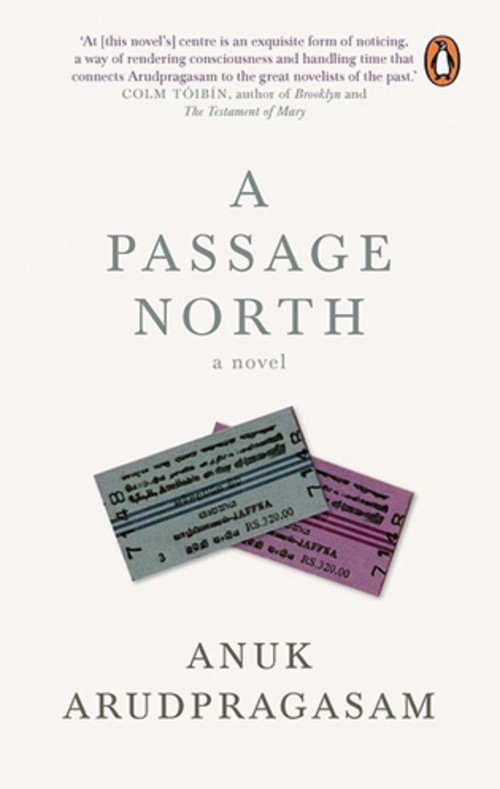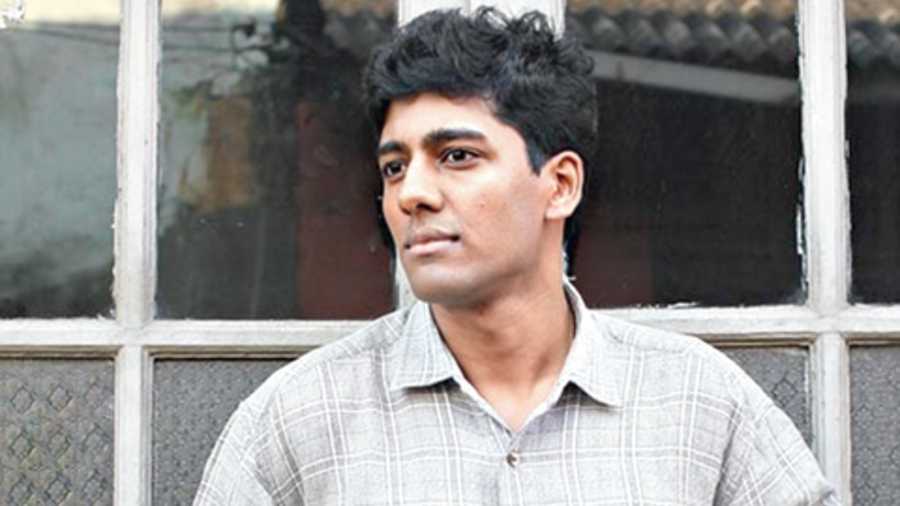Anuk Arudpragasam has an innate ability to observe and verbalise emotions that emerge from the most mundane activities of life. One can almost imagine him pondering and writing about human beings’ natural proclivity to flowers by chancing upon the simple act of a child running towards a garden. Hailing from Colombo, Sri Lanka, the award-winning author of The Story of a Brief Marriage with a doctorate from Columbia University, launched his latest novel in India on July 13 –– A Passage North (Hamish Hamilton; Rs 599). Beautifully portraying the dissonance of the internal and external war within a person, the author sets the tone for the exquisite novel that many were waiting for with immense expectations.
A Passage North is a story of Colombo resident Krishan who receives the news of his grandmother’s caretaker Rani’s passing and his subsequent travels through the innermost regions of a war-torn country in the aftermath of Sri Lankan Civil war. The obtusely observatory nature of experiencing catastrophes from a safe distance tears apart the young man who struggles to confront his personal losses while immersing himself further into the history of the island country. Rani’s eldest daughter dispassionately informs of her mother’s accidental death that involved falling inside a well and breaking her neck and the subsequent funeral that desired his presence. That Rani had gone back home for a short while to commemorate her own son’s death in the war, makes for a poignantly parallel metaphor, plenitude of which is found throughout the pages.
Krishan, who was studying in Delhi when the Sri Lankan Civil War finally retracted its tentacles after almost three decades, subjects himself to an internal war within him by consuming second-hand reportage of the gruesome events unfolding in his country. Arudpagasam’s personal experience shaped his previous novel as much as it did this one and the singular thread binds his work.
Consumed in love for an activist Anjum who unironically used ‘comrades’ to refer to her friends and dreamt of a home for those in need, Krishan receives an email from his old lover and the news of Rani’s death on the very same day. That marks the beginning of a journey both inwards and outwards. The minority experience in a post-war zone of a person seemingly detached from the political events of the country to the extent of deaths being equivalent to statistics, is suddenly multiplied when placed in a context that is personal. As Krishan travels from Colombo towards north on a train, readers become privy to his past relationship with Anjum and his yearning to go back to what is seemingly irreconcilable. The experience of displaced Tamils making choices between frying pan and fire, which come in the form of a hostile crisis of refugees lost from their homeland, is infused into the tale that reads like the protagonist’s stream of consciousness.

Arudpragasam’s prose is poetic and his sentences are long. A writer who claims to write to give home to his philosophical thoughts rather than worship a plot, his protagonist is a symbol of everything that is alive. Likening the sense of grief to the pull of desire, he finds points of pain in the mind and painstakingly joins the dots. “It was funny how similar desire was to loss in this way, how desire too, like bereavement, could cut through the fabric of ordinary life, causing the routines and rhythms that had governed your existence so totally as to seem unquestionable to quietly lose the hard glint of necessity, leaving you almost in a state of disbelief, unable to participate in the world,” he writes.
The gorgeous cover picture by Ahlawat Gunjan is as inviting as is ominous, showing two train tickets marking a journey –– for the character and the readers. This is one book that will remain with you long after you have turned the last page.











